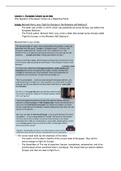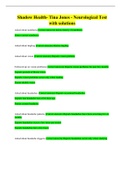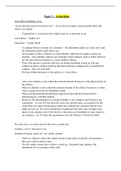Summary
Summary Culture & Language: Europe Lectures 1-12
- Course
- Institution
Summary of the Culture & Language: Europe course taught in the first year and second semester of the BA International Studies at Leiden University. It contains an extensive summary of lectures 1 to 12.
[Show more]






